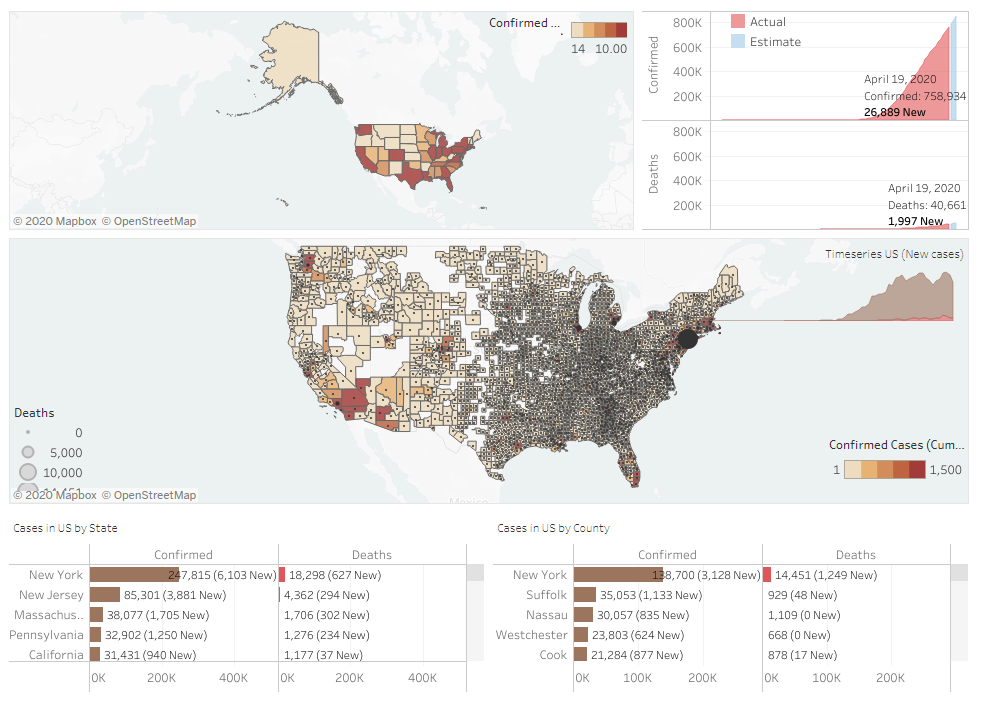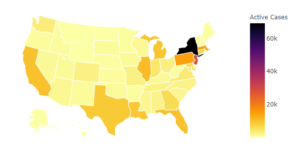
COVID-19 Roundup: Apple, Palantir, Rolls-Royce & More

As the COVID-19 pandemic sweeps the globe, big data and AI have emerged as crucial tools for everything from diagnosis and epidemiology to therapeutic and vaccine development. Here, we collect the latest news in how big data is fighting back against COVID-19.
 Apple makes its mobility data available for COVID-19 research
Apple makes its mobility data available for COVID-19 research
In support of COVID-19 research, Apple has released a mobility data trends tool using data from Apple Maps. Specifically, the dataset is generated using requests made to Apple Maps for directions. The data, which is anonymized and aggregated, is available on a website and indicates trends in mobility for major cities and 63 countries or regions. To view the data tool, click here, and to read more, click here.
Rolls-Royce establishes a COVID-19 data alliance
Rolls-Royce is accelerating COVID-19 recovery with a coalition called Emer2gent, which it describes as “a new alliance of data analytics experts challenged with finding new, faster ways of supporting business and governments globally as they recover from the economic impacts of COVID-19.” Early members include IBM, Google Cloud, Truata, and more. To read more, click here.
MariaDB launches program to support organizations fighting COVID-19
Enterprise open source database provider MariaDB has launched a new program to help healthcare workers, researchers, and others fight back against COVID-19. The company is offering free access to MariaDB SkySQL, a database-as-a-service tool designed for transactions, analytics, or both. “MariaDB wants to do its part to help in the fight against COVID-19,” MariaDB officials stated. To read more, click here.
Cal State LA introduces COVID-19 dashboard and mortality risk prediction tool
Leveraging the deluge of COVID-19 data, Cal State LA researchers have produced two tools to aid researchers and civilians. The first is an interactive dashboard of COVID-19 cases and deaths, along with projections, that enables easy views of comparisons and specific regions or states. The second is a predictive mortality risk tool based on COVID-19 patient data. To view the dashboard, click here, and to read more about both efforts, click here.
Palantir turns its eye to COVID-19 with new HHS contract
Big data analytics company Palantir has secured a $17.3 million contract with the US. Department of Health and Human Services (HHS). While details on the contract are scarce, the contract covers licenses for Gotham (Palantir’s big data analytics platform) in support of the Program Support Center of the HHS, specifically for “COVID-19 emergency response.” To read more, click here.
Domino Data Lab opens platform for COVID-19 research
Open data science platform provider Domino Data Lab is extending complimentary access to its data science platform for organizations researching COVID-19. The platform, which is pre-populated with several datasets, is already being used by a number of organizations to research COVID-19. Reinsurance provider SCOR has already leveraged Domino to build a public web app to visualize COVID-19 trends. To read more, click here.
MIT develops analytics tools that predict COVID-19 patient outcomes and more
Researchers at MIT have developed a suite of COVID-19 tools leveraging machine learning and analytics. Among them are a tool that predicts patient outcomes based on symptoms, demographics, and health data; a tool that predicts COVID-19 spread; a tool that helps healthcare providers optimize ventilator allocation; and a tool that aims to develop an easier test for COVID-19 diagnosis. To read more, click here.
IBM issues COVID-19 challenge to coders
IBM has issued an expanded “Call for Code” aiming to “identify, build, and deploy solutions” for community cooperation, crisis communication and remote education. IBM, which is working with the United Nations Human Rights Council and the Linux Foundation, released starter kits to aid coders. To read more about the Call for Code Global Challenge (which has an initial submission deadline of April 27), click here.
Do you know about big data applications for COVID-19 that should be featured on this list? If so, send us an email at [email protected]. We look forward to hearing from you.





























